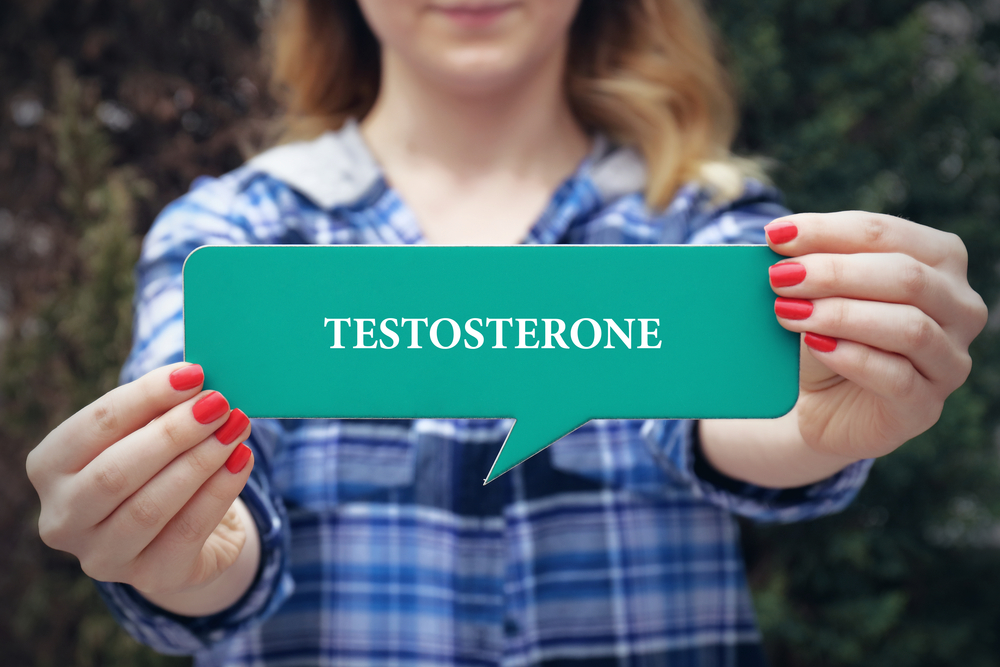
Signs of Unhealthy Testosterone Levels in Women
Unhealthy Testosterone Levels in Women: Causes and Symptoms
It might surprise you to learn that women can have unhealthy testosterone levels. Testosterone is generally thought of as a male hormone, but women need testosterone too, and it’s an important hormone for women’s health. Women just have lower levels than males. Let’s learn more about testosterone and the role it plays for women.
Why Do Women Need Testosterone?
Testosterone is a type of androgen or sex hormone. Hormones are important chemical messengers in your body that tell your body how to complete certain functions. In women, the ovaries and the adrenal glands produce testosterone. The adrenal glands are small glands located over the kidneys. Testosterone has several functions for women, including:
- Mood regulation
- Bone support
- Maintenance of muscle mass
- Body fat distribution
- Healthy sex drive
Testosterone levels in women may become either too high or too low. When this happens, you’ll experience unpleasant symptoms.
Low Testosterone in Women
We hear much about “low T” in men, but women may also experience low testosterone. Testosterone levels gradually decline around age thirty. When testosterone levels fall below normal, women may experience the following symptoms:
- Low sex drive
- Weight gain, especially around the middle
- Mood changes
- Bone loss
- Decreased muscle strength
- Thinning hair
- Dry skin
- Decreased energy
- Vaginal dryness
- Infertility
- Irregular menstrual cycles
- Sleep problems
Unfortunately, low testosterone in women is often misdiagnosed. The symptoms might be subtle and can be mistaken for conditions like depression leading to delays in proper treatment.
Causes of Low Testosterone in Women
Why might a woman experience low testosterone levels? It turns out there are several contributing factors. These include:
- Certain hormonal birth control methods like “the pill”
- Surgical removal of the ovaries
- Premature ovarian failure
- Menopause
- HIV infection
- Pituitary gland problems
- High or long-term corticosteroid medications
- Chemotherapy or radiation treatments
- Malnutrition, like in anorexia
- Certain medications
High Testosterone in Women
Women might also experience higher than normal levels of testosterone. High levels of testosterone can cause some issues too. These include:
- Acne
- Abnormal hair growth
- Male pattern baldness
- Menstrual irregularities
- Infertility
- Insulin resistance or diabetes
Causes of High Testosterone in Women
High testosterone is often a symptom of another health issue. For example, polycystic ovarian syndrome (PCOS) often causes the body to overproduce testosterone. Adrenal disorders are another common cause of high testosterone.
In peri-menopausal and menopausal women, testosterone levels may become unbalanced in relation to other hormones like estrogen and progesterone. A comprehensive hormone evaluation will look at each individual hormone level and their ratios to the other hormones.
Diagnosing an Unhealthy Testosterone in Women
How do you know if you have a testosterone problem? The first sign may be one of the symptoms from the lists above. Speak with your healthcare provider, who can explore your symptoms, and then order a blood test to check your testosterone level. Your provider will ask you if you are still having periods. Hormone levels fluctuate throughout the menstrual cycle, and your provider will want to time the blood test to get the most accurate reading of your testosterone level.
How Can You Lower Testosterone in Women?
The first step in treating testosterone levels in women that are too high is to look for the cause. PCOS and adrenal disorders require special treatment that can help lower testosterone. You might need medications to treat the underlying condition responsible for high testosterone. Your healthcare provider may also recommend supplements like green tea or other herbs known to lower testosterone levels.
How Is Low Testosterone Treated in Women
Much like in men, low testosterone levels can be treated through supplementation. Testosterone supplements can be given by injection, topical creams, or hormone-infused pellets. Your healthcare provider will periodically check blood tests to see how your testosterone level responds and can adjust the hormone dose up or down to customize your treatment. Women who receive testosterone supplements can expect an increase in their energy level, less fatigue, and an increase in sex drive.
Your healthcare provider may also use other supplements like DHEA to help support your testosterone levels. DHEA is a precursor to testosterone and can help your body continue to produce testosterone.
Side effects of testosterone treatment
Your healthcare provider will monitor treatment effects carefully to ensure you have the best outcome, but testosterone treatment has a few potential side effects. These include:
- Hair loss
- Acne
- Excess facial hair
- Deepening of the voice
- Enlargement of the clitoris
If you experience bothersome side effects, discuss these with your healthcare provider.
Additionally, if you are of childbearing age, you’ll need to take precautions not to become pregnant while on testosterone therapy. Testosterone can cross the placenta and cause changes in the genitals of the fetus.
Who Shouldn’t Take Testosterone Supplementation?
Testosterone supplementation is safe for most women, but some medical conditions make treatment a higher risk. If you’ve had heart, blood vessel, or liver disease, your healthcare provider will carefully evaluate if you can safely use testosterone supplements. Women who have had breast or uterine cancer might not be candidates for treatment with testosterone. Be sure to discuss your full medical history with your healthcare provider to determine if treatment is right for you.
How to Get Started With Treatment
If you are experiencing symptoms of unhealthy testosterone, discuss your symptoms with your healthcare provider. Our specialists at Vitality Aesthetic and Regenerative Medicine are experts in customizing a treatment plan to address your health concerns. Contact us today to schedule your consultation and start your path to wellness.

